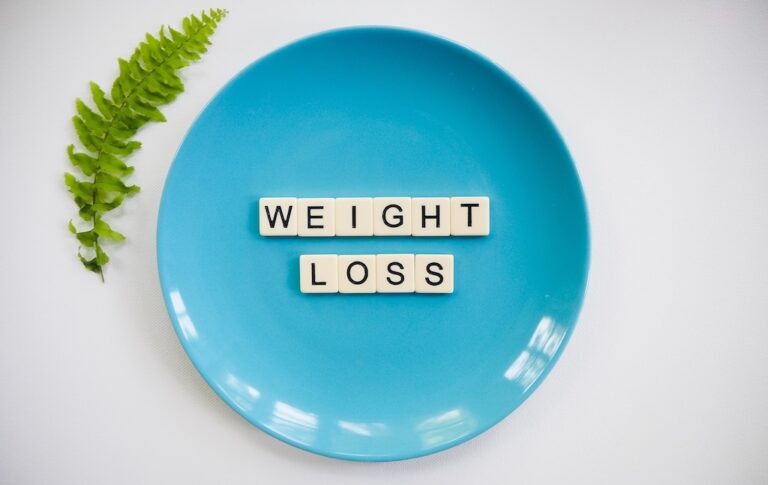Eggs and Seniors: Health Benefits, Risks, and Recommendations
As we age, our nutrient needs change. Seniors often require more protein, vitamins, and minerals to maintain bone, muscle, and cognitive health. Eggs are a nutritional powerhouse that can help meet the unique needs of the senior population.
But are eggs food for seniors? Eggs are beneficial for seniors due to their high protein content, essential vitamins and minerals, omega-3 fatty acids, and antioxidants that support muscle strength, brain health, immune function, and eye health. However, they should be consumed in moderation due to their high cholesterol content and potential risk of foodborne illnesses if not properly cooked.
Here is an in-depth look at the health benefits of eggs for seniors, along with some potential risks and preparation recommendations.

What Are the Nutritional Benefits of Eggs for Seniors?
Eggs offer a number of important vitamins, minerals, antioxidants, and other nutrients that are especially beneficial for seniors. Eggs are a good source of nutrition for seniors.
Here are some of the top nutrients found in eggs:
1. High in Protein
Eggs are one of the highest quality protein sources available. A large egg contains about 6 grams of protein, including all nine essential amino acids that our bodies cannot make on their own. Consuming enough protein is crucial for seniors to maintain muscle mass and strength, which typically decline with age. The high leucine content in eggs makes them especially helpful for preserving muscles.
2. Rich in Vitamins and Minerals
Eggs provide significant amounts of vitamin D, selenium, riboflavin, and choline. Vitamin D promotes bone health and immune functioning. Selenium boosts immune response. Riboflavin helps turn food into energy. Choline promotes liver and brain health. Many seniors fall short on these micronutrients, so eggs can help fill nutrient gaps.
3. Good Source of Omega-3 Fatty Acids
Omega-3 fatty acids like DHA and EPA found in eggs reduce inflammation, promote heart health, and support brain function. People naturally lose some ability to convert ALA omega-3s into active DHA and EPA as they age, so getting pre-formed DHA and EPA directly from eggs is advantageous.
4. May Improve Eye Health
Lutein and zeaxanthin carotenoids in egg yolks may prevent age-related macular degeneration and cataracts. These antioxidants accumulate in eye tissues and filter out damaging blue light that can impair vision.
How Can Eggs Benefit the Overall Health of Seniors?
The wide array of nutrients in eggs can promote health in many ways as we age. Here are some of the key benefits:
1. Support Muscle Strength and Mass
Adequate protein intake, along with leucine, vitamin D, and omega-3s found in eggs help seniors build and maintain more muscle mass. This preserves strength and mobility, reducing the risk of falls and fractures.
2. Promote Brain Health
Choline in eggs is essential for brain development and protection. Omega-3s also boost circulation and protect brain cells from inflammation and oxidative damage. This may help prevent cognitive decline.
3. Boost Immune System Functioning
Zinc, selenium, vitamin D, and protein in eggs all help regulate and strengthen immune response in seniors. This helps fight illness and infections.
4. Aid in Weight Management
The high protein and nutrient density of eggs promote satiety and help seniors feel full longer after eating. This can support healthy body weight without overeating.
What Are the Potential Risks of Eating Eggs for Seniors?
While eggs offer many benefits, there are a few potential downsides to consider:
1. High Cholesterol Content
Egg yolks are high in dietary cholesterol, with about 185 mg per large yolk. For most seniors, dietary cholesterol has a relatively small impact on blood cholesterol levels. But for some, excess cholesterol may increase heart disease risk.
2. Risk of Foodborne Illnesses
Raw or undercooked eggs can contain Salmonella bacteria that cause food poisoning. Seniors may be more susceptible to complications from foodborne illness due to weakened immune systems. Proper cooking and handling of eggs reduces this risk.
3. Allergic Reactions
Eggs are one of the most common food allergens. Reactions can range from mild to life-threatening. Seniors with egg allergies should avoid eggs completely.
How Many Eggs Should Seniors Eat per Week?
Current nutrition guidelines generally recommend limiting cholesterol intake to 300 mg per day. Under this guideline, most healthy seniors can safely eat 1-2 eggs per day or up to 12 eggs per week as part of a varied diet.
Those with heart disease or diabetes may need to limit eggs to 2-4 per week. Checking with a doctor is advised, especially if taking cholesterol medications. People with egg allergies should avoid eggs altogether.
What Are Some Healthy Ways to Prepare Eggs for Seniors?
Cooking eggs thoroughly reduces risks of foodborne illness:
- Boiling, poaching, baking, or scrambling eggs until the yolks and whites are firm.
- Frying or cooking eggs over-easy until the yolks are thickened.
Avoid eating raw or undercooked eggs. Raw eggs may be used in recipes only if they are pasteurized.
Add vegetables like spinach, tomatoes, and onions for extra flavor and nutrients. Use monounsaturated fats like olive oil for cooking instead of butter or trans fats.
Can Seniors Eat Raw Eggs Safely?
Raw eggs pose a higher risk of Salmonella infections for seniors, as their immune systems are not as strong. Raw eggs in things like homemade Caesar dressing, smoothies, or batter should always be pasteurized first.
Should Seniors Avoid Egg Yolks?
Egg yolks contain the majority of an egg’s nutrients, so they should not be avoided altogether. The cholesterol concern is modest for most healthy seniors. Some options include:
- Eating more egg whites than whole eggs
- Removing 1-2 yolks per week from recipes
- Cooking egg dishes like omelets, scrambles, and frittatas using 1 whole egg + 2 egg whites
Overall, eggs are one of the most nutritious, affordable, and versatile foods seniors can eat. A diet that includes eggs can help seniors meet their increased protein and micronutrient needs. While excessive cholesterol may be a concern for some, eggs still offer many benefits and can be part of a healthy, balanced diet when prepared properly and consumed in moderation. As always, seniors should discuss diet with their healthcare providers.
Frequently Asked Questions
-
Are eggs good for seniors?
Eggs are good for seniors due to their high protein content, essential amino acids, vitamins, minerals, and omega-3 fatty acids. These nutrients support muscle strength, brain health, immune function, and weight management. However, seniors should consume eggs in moderation due to their high cholesterol content and potential risk of foodborne illnesses.
-
Can seniors walk too much?
It is possible to exercise excessively in senior citizens. Exercising too often can lead to injury and even death. You should also consult your doctor to limit how much exercise you do. For seniors, it may be necessary to do less intense aerobics as well as more leisurely activities such swimming and yoga.
-
Why do seniors lose their balance?
The vestibular system is located inside the inner ear. It helps us to perceive balance. The vestibular system is connected to the brain and sends a signal to our bodies when we’re about to fall. This allows us to direct the body to corrective actions. The vestibular system’s cells age and become less effective in correcting our situation.
-
What is the best diet for a 70 year old woman?
You can eat a variety of food from each of the five food categories: lots of colorful vegetables and legumes/beans, fruit, grain (cereal), foods that are mostly wholegrain or high in fibre, lean meats, poultry, fish and eggs, as well as nuts, seeds, milk, yogurt, and cheese, with a lot of reduced fat.
-
How do you fix old lady arms?
With your arms straight out, hold a dumbbell with each hand. Keep your spine straight and your elbows close to your sides. Then, lift the dumbbells to your shoulders by bending your elbows. Slowly return to your starting position. This is one repetition.
-
How long should a 65 year old exercise?
Adults 65 years and over need to exercise at least 150 minutes per week. This could be 30 minutes each day or 5 days per week of moderate activity like brisk walking. They also need to do 75 minutes per week of intense activity like running, jogging or hiking.
-
Can you build muscle after 70?
Seniors can still bulk up on muscle by pressing iron. As we age, our muscle mass drops at astonishing rates. Researchers found that lifting weights can help people over 50 not only preserve but even increase muscle mass.
-
Is it better to walk longer or faster?
It all boils down to this: The results show that walking faster than slow, average or fast may have a greater impact on long-term health and longevity, especially for seniors.
-
Can you build muscle at 65 years old?
Seniors can still bulk up on muscle by pressing iron. As we age, our muscle mass drops at astonishing rates. Researchers found that lifting weights can help people over 50 not only preserve but even increase muscle mass.
-
Can a 70 year old woman tone her arms?
According to Dr. Ronenn Roubenoff (associate professor, Tufts University School of Medicine), the percentage of individuals who have lost muscle mass increases to more than 50 percent by age 80, from just 13 percent to 24 percent in age 70. Even after 70, exercise and conditioning are good ways to maintain or regain muscle tone.






